The Real Estate Institute of New Zealand (REINZ) this week released its housing market results for November, which remained soft.
The REINZ House Price Index (HPI) rose 0.2% in November (previous month -0.2%) to be down by 0.2% year-on-year.
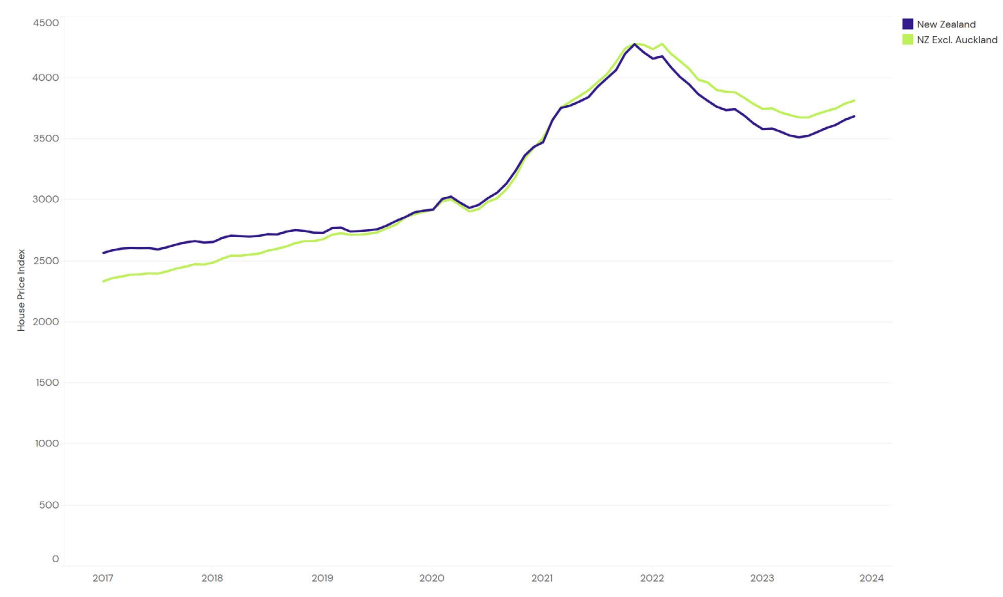
Westpac described the results as ‘treading water”:
“New Zealand’s housing market continued to tread water through November. Sales have picked up from the very weak levels we saw at the start of the year, but they remain low. Similarly, prices have effectively been tracking sideways for several months”.
“On the prices front, the REINZ house price index was more-or-less flat again in November. In fact, prices have effectively been tracking sideways since August (after adjusting for normal seasonal variations)”.
Westpac also expects the Reserve Bank’s aggressive interest rate hikes to continue to weigh on the market despite record immigration-driven population growth into New Zealand (shown in the next chart from Kiwibank).
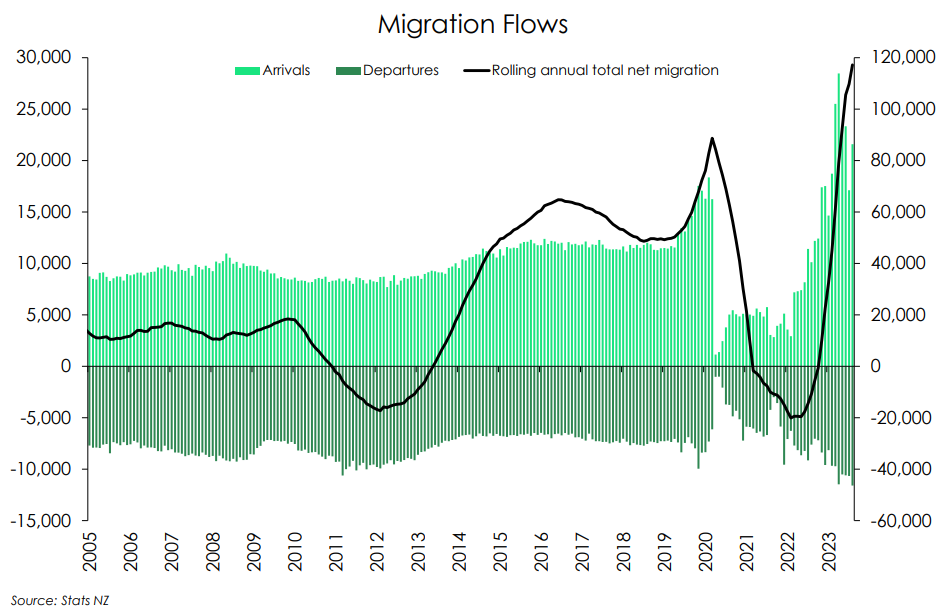
Westpac “expect that high interest rates will continue to be a brake on house price growth for some time yet. That’s made serviceability tougher for first home buyers and those looking to upgrade. It also means that net rental yields are still low”.
“Given the persistence in domestic inflation, we expect the RBNZ will keep the OCR at contractionary levels over the year ahead”, Westpac said.
However, Westpac still expects prices nationally to rebound by 8% in 2024 because “population growth is booming, with net migration rising to a record high of 129,000 in the year to October”.
Australia is in the opposite position with respect to house prices.
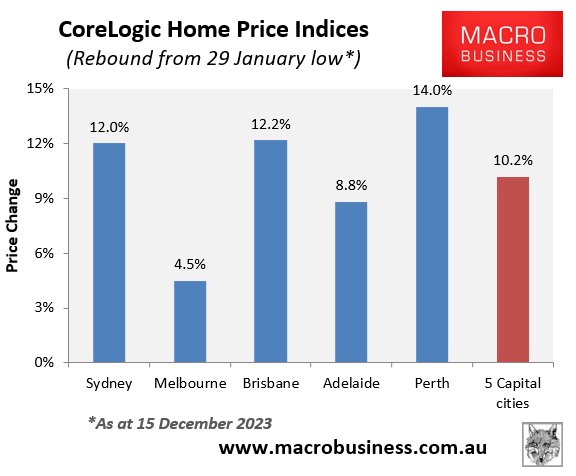
CoreLogic’s daily dwelling values index has already rebounded by 10% at the 5-city aggregate level since bottoming on 29 January off record net overseas migration.
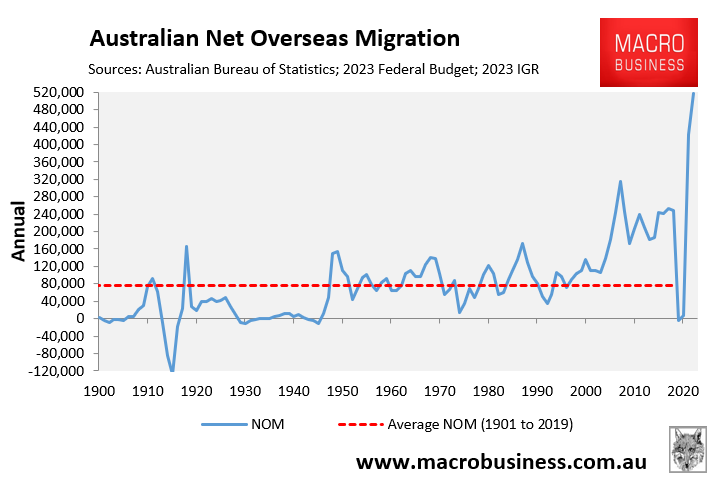
However, price momentum is fading fast, driven by falling growth across Melbourne and Sydney following last month’s 0.25% rate hike from the Reserve Bank:
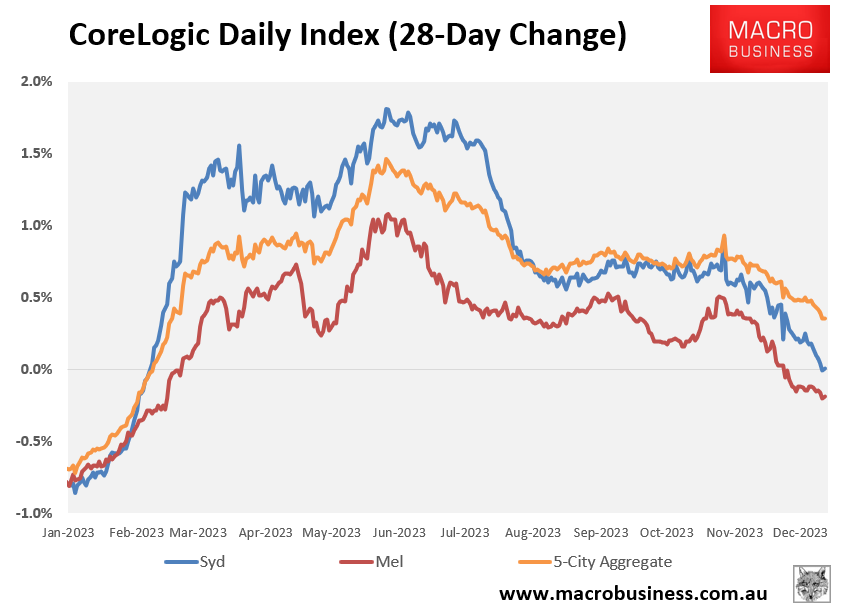
Final auction clearance rates in Australia have also collapsed to their lowest level this year, portending further price weakness:
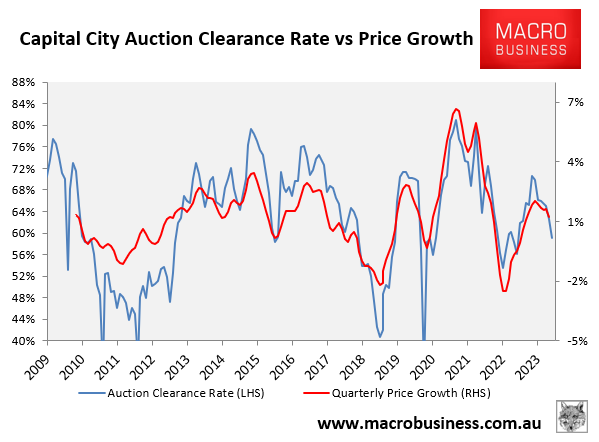
Thus, aggressive monetary tightening from both Reserve Banks is putting downward pressure on house prices.
But this is being offset by upward price pressure from record net overseas migration into both nations.

